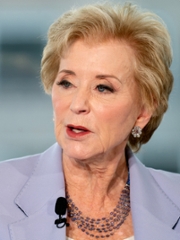| News & ideas for college & university leaders | SIGN UP ⋅ SHARE |
|
|
 
|
In today's issue, we take a Deep Dive into a new Vanderbilt poll about American attitudes toward education. Some of the findings are encouraging.
We also look at
✨ Cross-border colleges
✨ A new way to deliver campus health care
✨ Insight into how whales converse
|
|
|
|
|
Flow automatically syncs classes, rosters, assignments, and grades between your Student Information System and Learning Management System. No more manual updates or duplicate work. Learn more about Flow. |
|
|
|
| ADVERTISEMENT |  |
|
 
| |
 |
| (Bloomberg/Getty Images) |
Six new inter-agency agreements, signed by the Education Department, will transfer billions of dollars in grant programs — including major higher education funding streams — to other federal agencies, such as the Department of Labor, Health and Human Services, State, and Interior. These formal deals allow the Trump administration to reallocate significant educational responsibilities without congressional action, furthering its plan to dismantle the department. The agreements follow a pilot transfer of adult education programs to Labor earlier this year. The agency's $1.6 trillion student loan portfolio and the Office for Civil Rights remain intact for now, despite speculation that these responsibilities could also be shifted to other departments in the future.
|
|
|
|
|
AI, quantum, and hybrid computing are rewriting the rules of cybersecurity. Join us December 2 at 2PM EST for an exclusive webinar exploring the trends, tools, and tactics that will define 2026. Discover how to future-proof your defenses and outsmart evolving cyber risks. Register today. |
|
|
|
|
|
 
|
Americans overwhelmingly want colleges to focus on teaching students how to think critically rather than what to think, according to the Vanderbilt Unity poll. While 90% of respondents say teaching logical thinking is the most important aspect of college education, they also prefer higher education institutions to stay out of politics. However, respondents are divided on curriculum content, with most supporting the inclusion of slavery and prejudice but less so for gender identity and sexual orientation.
|
|
 |
- 85% say “the ability to get along with and understand people” is the most or very important
- 80% say “the desire and ability to be a more useful citizen” is the most or very important
- 79% say “training to fit them for a specific occupation or profession” is the most or very important
- 77% say “a larger amount of factual information” is the most or very important
- 77% say “moral growth” is the most or very important
|
 |
|
|
|
|
Achieve seamless transactions with ease. Tailored for retailers, our customer experience guide reveals strategies for reducing checkout friction and enhancing customer trust across all platforms. Get the guide. |
|
|
|
| ADVERTISEMENT |  |
|
 
 
| Reinventing Higher Education |
|
Cross-border campuses are emerging as a strategic response to the regionalization of global student mobility. Rather than relying solely on traditional recruitment to attract international students to the US, universities like Illinois Tech are designing educational architectures that bring their programs directly to where talent resides. By mirroring home campus standards and integrating local industry opportunities, these campuses offer high-quality, globally relevant education while fostering employability and research collaborations across borders.
|
|
|
|
|
Facing labor gaps and high customer demands, retailers can innovate operations with mobile technology—enabling real-time insights, contactless payments, digital receipts, and loyalty programs. Dive into this paper to see how mobile solutions can enhance retail operations and engage shoppers. |
|
|
|
|
|
 
| Leadership & Best Practices |
|
The changes created by AI demand leaders who are willing to adopt a Renaissance mindset that prioritizes adaptability, creativity and the integration of human-centric qualities, such as imagination and empathy, alongside analytical skills, writes Jeff DeGraff, a professor at the University of Michigan's Ross School of Business. Such leaders know how to build relationships in a fragmented world, act when times are competitive and blend analysis and empathy in times of uncertainty, DeGraff writes.
| | | | | |
